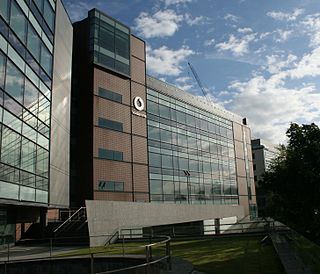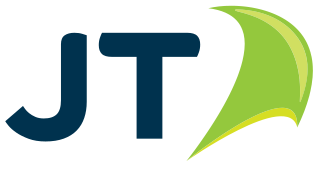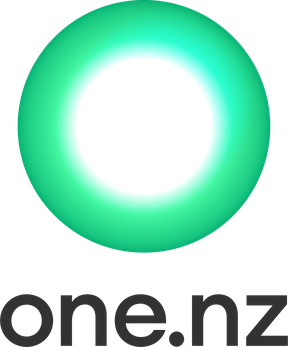Telecommunications in Ireland operate in a regulated competitive market that provides customers with a wide array of advanced digital services. This article explores Ireland's telecommunications infrastructure including: fixed and mobile networks, The voice, data and Internet services, cable television, developments in next-generation networks and broadcast networks for radio and television.
The services of communication in Jersey comprise Internet, telephone, broadcasting and postal services, which allow islanders to contact people and receive information.

3G is the third generation of wireless mobile telecommunications technology. It is the upgrade over 2G, 2.5G, GPRS and 2.75G Enhanced Data Rates for GSM Evolution networks, offering faster data transfer, and better voice quality. This network was superseded by 4G, and later on by 5G. This network is based on a set of standards used for mobile devices and mobile telecommunications use services and networks that comply with the International Mobile Telecommunications-2000 (IMT-2000) specifications by the International Telecommunication Union. 3G finds application in wireless voice telephony, mobile Internet access, fixed wireless Internet access, video calls and mobile TV.
4G is the fourth generation of broadband cellular network technology, succeeding 3G and preceding 5G. A 4G system must provide capabilities defined by ITU in IMT Advanced. Potential and current applications include amended mobile web access, IP telephony, gaming services, high-definition mobile TV, video conferencing, and 3D television.

Vodafone Ireland Limited, a wholly owned subsidiary of the Vodafone Group, is a mobile phone network and broadband provider in Ireland. It was created when the Vodafone Group bought Eircell, the mobile arm of Telecom Éireann. As of September 2019, Vodafone has 26% of broadband subscribers, and 43% of mobile phone subscribers.

JT Group Limited is the parent company of several subsidiaries including Jersey Telecom Limited and Wave Telecom Limited. Jersey Telecom is the former monopoly operator in the Bailiwick of Jersey. JT provides telecommunications, Internet access and other services, mostly within the Channel Islands.

StarHub Limited, commonly known as StarHub, is a Singaporean multinational telecommunications conglomerate and one of the major telcos operating in the country. Founded in 1998, it is listed on the Singapore Exchange (SGX).

One New Zealand Group Limited, stylised as One NZ, is a New Zealand telecommunications company. One NZ is the largest wireless carrier in New Zealand, accounting for 38% of the country's mobile share market in 2021.

FASTWEB S.p.A. is an Italian telecommunications company that provides fixed and mobile telephony, broadband Internet and IPTV services. It is also one of the prominent companies in Italy providing FTTH connections, and is a subsidiary of the Swiss telecommunication company Swisscom AG.
Vodafone Portugal – Comunicações Pessoais, S.A., a full subsidiary of the Vodafone Group, is the second mobile operator in Portugal, both chronologically and in market share. Its competitors are NOS and MEO.

Sri Lanka Telecom PLC, doing business as SLT-MOBITEL, is the national telecommunications services provider in Sri Lanka and one of the country's largest companies with an annual turnover in excess of Rs 40 billion. The company provides domestic and corporate services which include fixed and wireless telephony, Internet access and IT services to domestic, public and business sector customers. As of 2018 SLT-MOBITEL was Sri Lanka's second largest mobile network operator with over 7.9 million subscribers.
ONO was a Spanish broadband communication and entertainment company, delivering integrated telephone, television and Internet services to its residential customers. In this segment, it has 3.7 million services contracted and over six million users.
Internet access is widely available in New Zealand, with 94% of New Zealanders having access to the internet as of January 2021. It first became accessible to university students in the country in 1989. As of June 2018, there are 1,867,000 broadband connections, of which 1,524,000 are residential and 361,000 are business or government.
In telecommunications, long-term evolution (LTE) is a standard for wireless broadband communication for mobile devices and data terminals, based on the GSM/EDGE and UMTS/HSPA standards. It improves on those standards' capacity and speed by using a different radio interface and core network improvements. LTE is the upgrade path for carriers with both GSM/UMTS networks and CDMA2000 networks. Because LTE frequencies and bands differ from country to country, only multi-band phones can use LTE in all countries where it is supported.

The XT Network was a brand name for a UMTS and LTE mobile network run by Spark New Zealand . The network was initially built nationwide on WCDMA/UMTS 850 MHz, with 2100 MHz infill in major urban areas. The UMTS network is HSPA+ enabled, with a maximum downlink transmission rate of 21.1 Mbit/s and an uplink rate of 5.2 Mbit/s attainable for capable hardware. HSPA+ has a theoretical maximum of 56 Mbit/s download speed and 22 Mbit/s upload speed. Then under Spark 4G LTE is being built out. The network is not 2G capable, Telecom never operated a public GSM network.

Orange Egypt, formerly known as Mobinil, is the oldest mobile network operator in Egypt, founded on March 4, 1998. Orange provides voice and data exchange services, as well as 4G, 3G, ADSL and broadband internet.

Monaco Telecom is the primary telecommunications provider in the Principality of Monaco. Established in 1997, the company was formed following the government of Monaco's decision to privatize the previously state-owned Office Monégasque des Téléphones. Monaco Telecom provides various services including internet access and mobile phone services. It is a key entity in facilitating communication within Monaco and connecting the principality to global telecommunications networks. Additionally, the company operates a retail store which functions as a point of service and customer interaction.
3G mobile telephony was relatively slow to be adopted globally. In some instances, 3G networks do not use the same radio frequencies as 2G so mobile operators must build entirely new networks and license entirely new frequencies, especially so to achieve high data transmission rates. Other delays were due to the expenses of upgrading transmission hardware, especially for UMTS, whose deployment required the replacement of most broadcast towers. Due to these issues and difficulties with deployment, many carriers delayed acquisition of these updated capabilities.

Airtel India commonly known as Airtel, is the second largest provider of mobile telephony and third largest provider of fixed telephony in India, and is also a provider of broadband and subscription television services. The brand is operated by several subsidiaries of Bharti Airtel, with Bharti Hexacom and Bharti Telemedia providing broadband fixed line services and Bharti Infratel providing telecom passive infrastructure service such as telecom equipment and telecom towers. Currently, Airtel provides 5G, 4G and 4G+ services all over India. Currently offered services include fixed-line broadband, and voice services depending upon the country of operation. Airtel had also rolled out its VoLTE technology across all Indian telecom circles.











